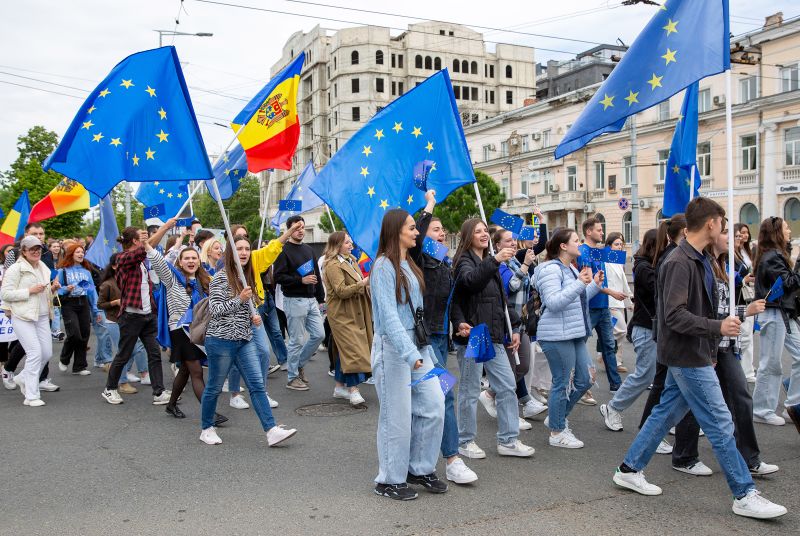
Moldova Caught in a Tug of War Between Russia and the West in Critical Dual Votes
In the heart of Eastern Europe, Moldova finds itself in a challenging position as it navigates a delicate tug-of-war between Russia and the West in two crucial upcoming votes. The former Soviet republic has long been the subject of geopolitical disputes, with both Moscow and Western powers vying for influence over the small country nestled between Ukraine and Romania.
As Moldova prepares for a presidential election, scheduled to take place in November, and a referendum on its electoral system, set for September, the stakes are high for the nation’s future direction. The outcomes of these votes could have far-reaching implications, not only for Moldova but also for the broader geopolitical landscape in Eastern Europe.
At the center of this geopolitical battle is the question of whether Moldova will continue to align itself with Russia or pivot towards closer ties with the European Union and the United States. The country has a history of political instability and corruption, factors that have contributed to its vulnerability to external influence. With a pro-Russian president currently in power, there are concerns that Moscow may seek to further solidify its grip on Moldova through these upcoming votes.
On the other hand, Moldova has also been the recipient of significant support from the West, particularly the European Union, which has provided financial aid and assistance to help the country implement reforms and combat corruption. The prospect of closer integration with Euro-Atlantic institutions has been a source of hope for many Moldovans who see this as a path towards prosperity and stability.
The upcoming presidential election will be a key test of Moldova’s commitment to democratic values and the rule of law. With allegations of corruption and political interference swirling around the current government, the choice of the next president will be critical in shaping Moldova’s future trajectory. Will the country continue on its current course towards deeper ties with Russia, or will it choose a new path that leads towards closer integration with the West?
Similarly, the referendum on the electoral system will also have significant implications for Moldova’s political landscape. A potential shift towards a proportional representation system could change the balance of power within the country’s parliament and potentially open up new opportunities for opposition parties. This, in turn, could impact Moldova’s foreign policy direction and its relations with both Russia and the West.
As Moldova stands at this crossroads, it faces a crucial decision that will shape its future for years to come. The outcome of the upcoming votes will not only determine the country’s political direction but also its place in the broader geopolitical landscape of Eastern Europe. How Moldova navigates this tug-of-war between Russia and the West will have far-reaching consequences, highlighting the complex challenges facing this small but strategically important nation.
